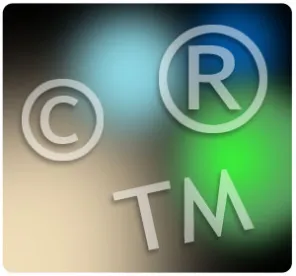From June through August 2015, the Trademark Trial & Appeal Board issued eleven precedential decisions. Over the course of the upcoming weeks, we will briefly summarize each opinion and a “take away” for brand owners and practitioner. We begin with the first two opinions (in chronological order): The Board of Trustees of The University of Alabama v. Pitts, Jr. and In re Aquamar.
The Board of Trustees of The University of Alabama v. Pitts, Jr. – You Can’t Erase the Past
This opinion is a sequel to another precedential opinion issued by the Board. Namely, on July 23, 2013, the Board issued a precedential decision dismissing the University of Alabama’s opposition to registration of the mark HOUNDSTOOTH MAFIA & Design in Class 25. In that opinion, the Board ruled against the University on likelihood of confusion and false suggestion of a connection with the University and its legendary coach Bear Bryant. Notably, the Board ruled that the University had failed to prove trademark rights in the houndstooth pattern which famously adorned the hats of Coach Bryant and had been used by the University since then.
Seeking “home field advantage,” the University sought review of the Board’s decision in the U.S. District Court for the Northern District of Alabama. Nevertheless, while the case was pending, the parties settled their dispute which included assignment of the application in question to the University. The parties submitted to the Court a Final Consent Judgment agreeing that the precedential Board ruling should be vacated. This was likely important to the University, which did not want a finding that the houndstooth design was not singularly associated with the University of record. The Court issued the Final Consent Judgment which ordered that the Board ruling be vacated.
Subsequently, the University filed with the Board a “Request to Reopen, Vacate and Dismiss Without Prejudice,” along with a copy of the Final Consent Judgment. Determining that “the policies and public interest implicated by a request to vacate a prior precedential opinion based on settlement are important,” the Board assessed the request on its merits.
It was not clear under what authority the University sought vacatur of the Board’s order. In U.S. Bancorp Mortgag Co. v. Bonner Mall Partnership, 513 U.S. 18, 29 (1994), the Supreme Court held that “mootness by reason of settlement does not justify vacatur of a judgment under review,” such that the proper course is for the appellate court to dismiss the appeal as moot and remand the matter to the Board to consider vacatur. Because the Board is not an Article III court, though, Bancorp did not apply. Also, vacatur was not sought by the University under Fed.R.Civ.P. 60(b).
Accordingly, the Board assessed the request for vacatur under 15 U.S.C. § 1071(b)(1), which empowers a district court to adjudge an application’s entitlement to registration, that a registration should be canceled, or “such other matter as the issues in the proceeding require, as the facts in the case may appear.” Also, “[s]uch adjudication shall authorize the Director to take any necessary action, upon compliance with the requirements of law.” (emphasis in opinion.)
The Board held that the Final Consent Judgment was not an adjudication and did none of the things allowed under 15 U.S.C. § 1071(b)(1). Notably, vacatur of the Board’s precedential opinion was not a “necessary action” because the Board’s precedential opinion did not bar registration of the application, now owned by the University; on the contrary, it allowed it.
Finally, the Board considered the request under its general equitable authority. Although the Final Consent Judgment included vacatur of the Board’s order, it did not adjudicate any of the facts or issues before the Board or the Court on review. Moreover, the public interest was served by the precedential ruling remaining viable to guide trademark practitioners. Finding no exceptional circumstances mitigating for vacatur, much less an equitable basis therefore, the Board denied vacatur under its equitable authority.
Take Away: If, as a term of settlement, a party to a TTAB action wishes to vacate a prior adverse ruling, it should not assume that an order of a reviewing court alone is sufficient to do so.
In re Aquamar – Hablas Español?
At issue in Aquamar was applicant Aquamar, Inc.’s application to register MARAZUL for “fish and seafood products, namely, frozen and fresh processed fish and seafood, and imitation crab meat.”
Initially, the Board considered the propriety of the examining attorney’s requirement that applicant provide an English translation of MARAZUL (“mar azul” is “blue sea” in Spanish). Applicant argued that MARAZUL was a “completely arbitrary designation and coined term,” and, even if the words were separated, “mar azul,” literally translated, means “sea blue.” The Board disagreed, noting branding on applicant’s website prominently using a blue wave design, as well as an anchor design frequently used with the MARAZUL mark on applicant’s packaging. The Board also cited precedent that simply combining two terms into one does not necessarily create a different commercial impression than the terms separately, particularly when applicant’s products were targeted to bilingual purchasers.
Next, the Board reviewed the examining attorney’s refusal to register MARAZUL on the grounds it would cause confusion with the prior-registered BLUE SEA for “non-live fish and frozen fish.” First, the Board found that the parties’ goods were, in part, identical, and, thus, their channels of trade and classes of purchasers were presumed to be the same. Second, the Board turned to the similarity of the marks. Finding that Spanish is a common language in the U.S., the Board held that the marks’ meanings are identical under the doctrine of foreign equivalents. Furthermore, the examining attorney had made of record printouts from applicant’s website showing that it targeted its products to the U.S. Hispanic market. Although equivalency in connotation is not alone determinative of the likelihood of confusion, here, as in past cases, the equivalency outweighed the differences in sound and appearance. They were identical in nuance and meaning. Accordingly, the Board upheld the refusal to register.
Take Away: When conducting trademark searches, make sure to review foreign language marks.



 />i
/>i

